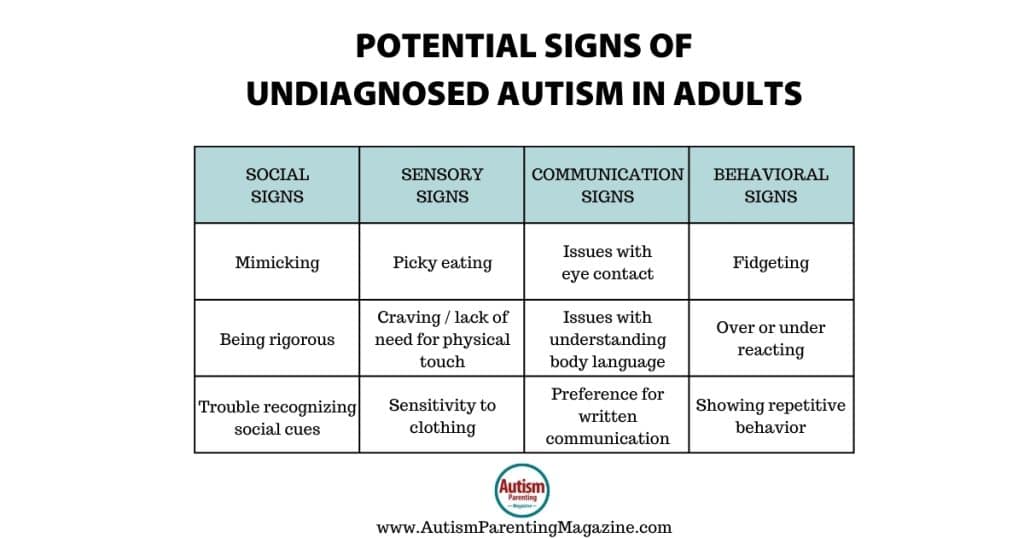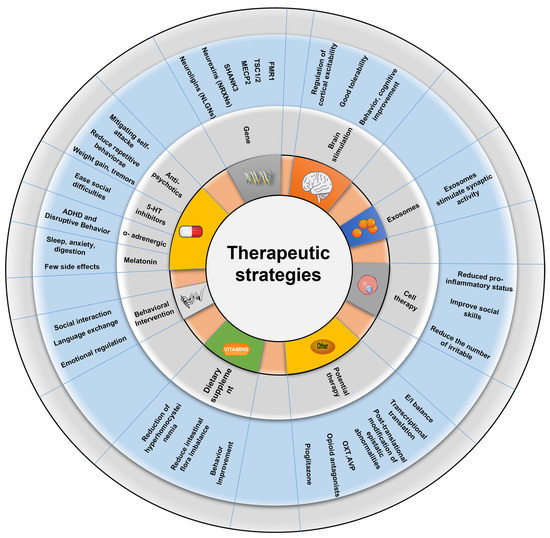Understanding the Influence of Behavioral Autism on Life and Social Interactions
You might not recognize exactly how deeply behavioral autism affects every day life and social interactions. Individuals on the spectrum often browse a globe loaded with communication difficulties and sensory overload. These challenges can result in disappointment and seclusion, impacting their connections and general wellness. Comprehending these nuances is necessary for promoting helpful settings. What approaches can we apply to create more purposeful links and inclusive spaces? The answers might amaze you.
Defining Behavior Autism and Its Characteristics
Behavior autism, frequently referred to as autism range condition (ASD), includes a series of problems characterized by challenges in social communication, communication, and recurring behaviors. You could observe that individuals with ASD frequently have a hard time to interpret social signs, which can lead to misconceptions in conversations. They may discover it difficult to establish eye get in touch with or involve in small talk, making social scenarios feel frustrating.
Communication problems can show up in numerous ways, from delayed speech advancement to a choice for using fewer words. Repetitive behaviors, such as hand-flapping or shaking, can function as coping systems to take care of tension or sensory overload. These features can profoundly affect day-to-day live, making it important for you to comprehend and sustain those with ASD. By identifying these characteristics, you can cultivate an environment that promotes approval and motivates reliable communication, helping people with autism thrive in their everyday communications.
The Spectrum of Autism: Recognizing Irregularity in Actions
Autism range problem (ASD) isn't a one-size-fits-all medical diagnosis; it differs commonly among individuals. You could observe that some individuals with ASD display moderate signs, while others might encounter a lot more significant challenges. This variability can show up in actions, interests, and sensory sensitivities. You might experience people who are extremely spoken and engage quickly in conversations, while others might prefer solitary activities or communicate non-verbally.
In addition, the means individuals with ASD react to sensory input can differ considerably; some may be overwhelmed by bright lights or loud noises, whereas others thrive in stimulating environments. The range additionally consists of differences in social interactions; some individuals may struggle to interpret social cues, while others navigate social setups with relative simplicity. Comprehending this irregularity is crucial, as it assists you appreciate everyone's special experience and dressmaker support to their details needs, fostering a much more inclusive environment for everyone.
Interaction Difficulties Encountered by Individuals With Autism
When you interact with people on the autism spectrum, you might notice their special communication obstacles. They often deal with troubles with both nonverbal and spoken signs, which can influence their social interactions. Comprehending these obstacles is vital for cultivating much better links and support.
Verbal Communication Problems
Lots of individuals on the autism spectrum experience spoken interaction difficulties that can considerably influence their daily communications. You might discover it challenging to share your thoughts, feelings, or needs clearly. This can cause stress for both you and those around you, as misconceptions take place. You may deal with initiating conversations, maintaining a subject, or understanding nuances in speech. Often, you might like utilizing basic language or repeated phrases, which can restrict your capability to take part in deeper discussions. Your volume, tone, or speed may not straighten with social expectations, creating others to misunderstand your purposes. Recognizing these challenges can assist you and your assistance network develop strategies to enhance interaction and promote better links with others in your life.
Nonverbal Interaction Barriers
Spoken communication isn't the only challenge individuals on the autism spectrum face; nonverbal interaction obstacles can be just as considerable. These difficulties can lead to misunderstandings or false impressions of social hints, making communications feel complicated or frustrating. By addressing nonverbal interaction, you can discover approaches to improve your social experiences and enhance your general quality of life.
Social Communication Influences
Social interactions can frequently really feel overwhelming as a result of the distinct interaction obstacles encountered by individuals with autism. You could battle with translating social signs, making it tough to comprehend sarcasm or body language. This can lead to misunderstandings or unpleasant minutes in discussions. Furthermore, initiating and preserving discussions might really feel tough, triggering anxiety in social scenarios. You might like structured atmospheres, making spontaneous interactions uncomfortable. It's likewise common to experience difficulty in taking part in small talk, which can impede creating new friendships. Identifying these challenges can assist you locate strategies to boost communication, such as exercising social skills in safe setups or making use of aesthetic aids - Autism Behavioral Therapy. Understanding your requirements permits you to navigate social communications with better self-confidence and simplicity.
Social Interaction and Relationship Building in Autism
While building connections can be challenging for people with autism, recognizing their one-of-a-kind point of views and interaction styles can promote meaningful links. You could notice that numerous individuals on the range prefer direct interaction and may deal with social signs or little talk. By being uncomplicated in your interactions, you can assist develop an environment where they feel comfy.
Put in the time to listen and observe just how they express themselves. This insight can direct you in steering discussions better. Involving in shared site passions can also work as a bridge to deeper connections. Whether it's a pastime, a favored program, or a mutual enthusiasm, these typical threads can open doors to relationship.
Daily Life Routine: Browsing Techniques and difficulties
Maneuvering every day life routines can be particularly testing for individuals with autism, particularly when unforeseen adjustments take place. You may locate comfort in having an organized routine, as it helps you anticipate what's next. When disruptions happen, it's regular to feel nervous or overloaded. To navigate these difficulties, take into consideration executing visual schedules or checklists. These tools can provide quality and confidence.
Establishing a routine that includes sensory breaks can additionally be advantageous. You can intend time-outs throughout your day to recharge. It's vital to communicate with those around you, allowing them know your choices and demands. This aids produce an understanding setting.
Lastly, practice mindfulness techniques to take care of stress and stress and anxiety. Basic breathing exercises or basing strategies can make a significant distinction. By incorporating these methods, you can enhance your day-to-day routine and minimize interruptions, making life feel a lot more manageable.
Staminas and Abilities of People on the Autism Range
Recognizing day-to-day life routines is simply one aspect of the autism experience. Numerous individuals on the autism range have amazing staminas and capabilities that establish them apart.
Moreover, your memory skills usually beam, especially in areas of interest. Aba Therapist. This knack for keeping info can make you a useful resource in fields like art, modern technology, or scientific research. You may additionally show solid visual thinking, enabling you to visualize complex concepts and address problems artistically
Additionally, your distinct point of view on the globe can promote compassion and understanding in others, improving social communications. Embracing these toughness not just improves your confidence but also assists others value the varied skills you bring to the table.
Developing Comprehensive Atmospheres for Individuals With Autism
Developing comprehensive atmospheres for people with autism begins with creating sensory-friendly areas that accommodate their distinct demands. You can likewise foster opportunities for social communication, helping to develop relationships and connections. By making these changes, you'll add to a much more inviting environment for everybody.
Creating Sensory-Friendly Spaces
While creating sensory-friendly rooms, it's vital to mirror on the distinct requirements of people with autism. Integrate peaceful areas where people can recharge and pull away when overwhelmed. Consist of visual timetables or clear signs to aid individuals navigate the room confidently.
Advertising Social Interaction Opportunities
Creating sensory-friendly spaces not just addresses individual convenience but likewise sets the phase for significant social interactions among individuals with autism. Encourage try this out peer mentoring, combining individuals with autism with supportive peers that can guide them through social circumstances. By executing these strategies, you can improve social possibilities, aiding individuals with autism develop relationships and enhance their social abilities in a secure, inviting environment.

Often Asked Inquiries
How Can Buddies Assistance A Person With Behavioral Autism?
You can support a close friend with behavior autism by holding your horses, paying attention proactively, and respecting their limits. Participate in tasks they take pleasure in, interact honestly, and develop a comfortable setting where they really feel valued and understood.
What Resources Are Available for Parents of Children With Autism?
You can check out numerous sources for moms and dads of youngsters with autism, consisting of support teams, educational sites, and local social work. Getting in touch with various other moms and dads can also provide valuable understandings and shared experiences to assist navigate difficulties.
Can Behavioral Autism Modification Over Time?

Yes, behavioral autism can alter gradually. You could see changes in communication, social skills, and behavior as your kid grows. Early intervention and support commonly play important roles in these developmental modifications.
How Do Sensory Sensitivities Impact Every Day Life?
Sensory sensitivities can make daily experiences overwhelming. You may fight with loud sounds or brilliant lights, causing anxiety or avoidance. Locating environments that fit your needs can greatly enhance your convenience and overall everyday life.
What Are Common Misconceptions Regarding Behavioral Autism?
You could think behavioral autism just affects communication abilities, yet it's more facility. Many assume individuals lack empathy or knowledge, which isn't over at this website true. Recognizing these mistaken beliefs helps foster acceptance and assistance for those on the spectrum.
Behavioral autism, usually referred to as autism spectrum condition (ASD), encompasses an array of problems characterized by difficulties in social interaction, interaction, and repetitive behaviors.Social interactions can commonly really feel frustrating due to the one-of-a-kind communication challenges faced by people with autism.Creating sensory-friendly rooms not only addresses private convenience but likewise sets the stage for significant social communications amongst people with autism. Motivate peer mentoring, combining people with autism with helpful peers who can assist them with social circumstances. By applying these strategies, you can enhance social opportunities, aiding people with autism construct relationships and reinforce their social abilities in a risk-free, welcoming setting.